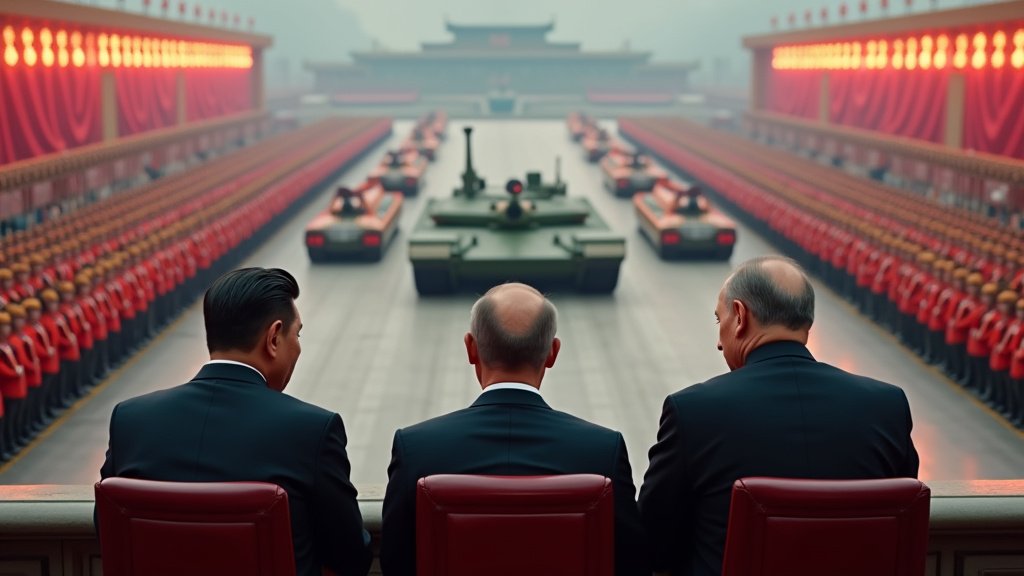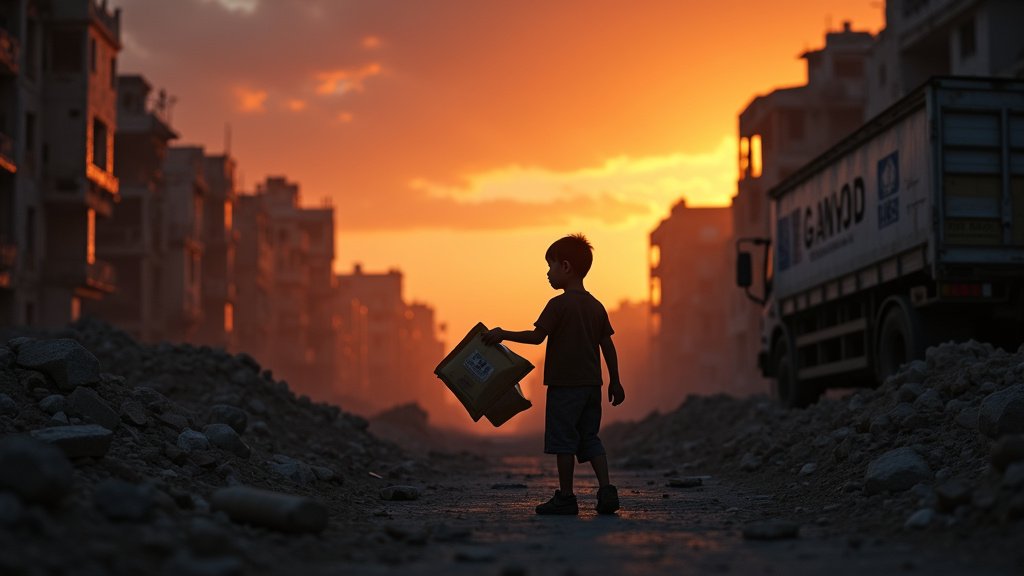The day of August 27, 2025, has brought a confluence of critical developments across India and the world, ranging from a devastating natural disaster to significant milestones in sports, national security, and international diplomacy. As schools prepare for their morning assemblies, students are being informed about a nation in mourning following landslides near the sacred Vaishno Devi shrine, preparations for a grand international chess event, key diplomatic exchanges, and strategic advancements in India’s naval capabilities.
Tragedy Strikes at Vaishno Devi Amidst Heavy Rains
Tragedy has befallen pilgrims en route to the revered Mata Vaishno Devi shrine in Jammu and Kashmir. Heavy and relentless rainfall on Tuesday, August 26, triggered a massive landslide near Adhkuwari, a significant point on the 12-kilometer pilgrimage route from Katra. Reports indicate that the deluge caused hillsides to give way, sending stones, boulders, and debris cascading down the path. The catastrophic event resulted in the loss of at least 30 lives, with many more individuals sustaining injuries. Official figures suggest that between 30 to 33 pilgrims lost their lives, and over 20 were injured. The landslide occurred around 3 PM on Tuesday, catching many devotees, who had sought shelter under an iron shed due to the downpour, by surprise. Rescue operations were immediately launched by the State Disaster Response Force (SDRF) and local police, working through the night to search for survivors and clear the debris. The pilgrimage to the shrine has been suspended for safety reasons, and authorities have issued advisories for people to stay away from riverbanks and flood-prone areas. The Jammu and Kashmir administration has ordered the closure of educational institutions and offices, except for essential services, as heavy rainfall continues to batter the region. Rivers like the Basantar, Tawi, and Chenab are flowing at alert levels, and widespread damage to infrastructure, including bridges and communication lines, has been reported across Jammu and Kashmir. This incident underscores the severe impact of extreme weather events on vital national routes and pilgrimage sites.
Goa Set to Host Prestigious FIDE World Cup 2025
In a significant development for the world of chess, India is gearing up to host the FIDE World Cup 2025 in the scenic state of Goa. The prestigious tournament is scheduled to take place from October 30 to November 27, marking its return to Indian soil after a hiatus of 23 years, with the last hosting being in Hyderabad in 2002. This event promises to be a grand spectacle, featuring 206 of the world’s top chess players competing for a substantial prize pool of USD 2 million (over ₹17.5 crore). More importantly, the tournament offers three coveted qualifying spots for the 2026 Candidates Tournament, a crucial step for players aspiring to challenge for the World Chess Championship. The knockout tournament will follow an eight-round format, with top seeds receiving byes into the second round. India’s recent surge in chess prominence, highlighted by D Gukesh becoming the World Champion and the national teams’ triumphs at the Chess Olympiad, makes hosting this event particularly timely. Prime Minister Narendra Modi expressed his delight at India hosting the World Cup, noting the growing popularity of chess among the nation’s youth and expressing confidence that the tournament will showcase the brilliance of global players. The selection of Goa as the venue further adds to the appeal, with its natural beauty and vibrant culture providing a unique backdrop for the high-stakes competition. This event is expected to inspire millions and further cement India’s status as a global hub for chess.
Diplomatic Tensions Simmer as Reports Suggest PM Modi Avoided Trump’s Calls
Amidst escalating trade tensions and the imposition of significant tariffs by the United States on Indian goods, reports have emerged suggesting a diplomatic standoff between New Delhi and Washington. According to German newspaper Frankfurter Allgemeine Zeitung (FAZ) and corroborated by Japanese outlet Nikkei Asia, Prime Minister Narendra Modi has reportedly refused to take multiple phone calls from former US President Donald Trump in recent weeks. These alleged refusals are seen as a reflection of India’s firm stance on protecting its economic interests, particularly concerning the tariffs imposed by the Trump administration, which have doubled on Indian goods to nearly 50 percent, including a 25 percent additional duty on India’s purchase of Russian crude oil. Sources suggest that Prime Minister Modi’s perceived refusal to engage directly with Trump stems from a combination of anger over the US policies and a strategic caution against potential misinterpretations or unhelpful outcomes from such discussions. The reports highlight that Trump’s usual tactics of pressure and threats have not yielded the desired results with India, signaling a new dynamic in the bilateral relationship. While neither Washington nor New Delhi has officially commented on these specific claims, the reports underscore the friction in Indo-US ties and India’s resolve to stand firm against external economic pressures.
Indian Navy Boosts Maritime Strength with New Stealth Frigates
In a significant move to bolster its operational capabilities and reinforce its commitment to self-reliance in defence manufacturing, the Indian Navy commissioned two state-of-the-art, multi-mission stealth frigates, INS Udaygiri and INS Himgiri, simultaneously on August 26th. The induction ceremony, presided over by Defence Minister Rajnath Singh at the Naval Base in Visakhapatnam, marks a historic occasion as it is the first time two frontline combatants built at different shipyards have entered service on the same day. These advanced frigates are part of the Project 17A class, representing a leap forward in indigenous warship design and construction. Incorporating improved stealth features, advanced weapon systems, sophisticated sensors, and modern propulsion, these vessels are designed for a full spectrum of maritime operations in blue-water conditions. They are equipped with indigenous systems such as long-range Surface-to-Air Missiles, the Supersonic BrahMos Missile, indigenous Rocket Launchers, and advanced combat management systems. With nearly 75% indigenous content, the commissioning of INS Udaygiri and INS Himgiri signifies a major step towards achieving ‘Atmanirbhar Bharat’ (self-reliant India) in the defence sector. Defence Minister Singh stated that these ships are not just enhancements to the Navy’s fleet but also a clear message that India is capable of protecting its maritime borders and ready to respond decisively to any threat. These frigates will be based in the Eastern Fleet, enhancing India’s maritime security posture in the Indian Ocean Region and beyond.
Global Diplomacy: Xi Jinping to Host Putin and Modi Amidst Shifting World Order
In a significant display of global diplomacy and strategic alignment, Chinese President Xi Jinping is set to host Russian President Vladimir Putin and Indian Prime Minister Narendra Modi for the Shanghai Cooperation Organisation (SCO) summit in Tianjin, China, from August 31 to September 1. This high-profile meeting, expected to draw over 20 leaders from across Asia and the Middle East, is being viewed as a crucial platform to showcase solidarity among key global powers in response to perceived ‘power politics’ and trade pressures emanating from the United States, particularly under President Trump’s tariff policies. Analysts suggest that President Xi aims to leverage the summit to highlight a vision for a post-American-led international order and demonstrate that efforts to counter China, Iran, Russia, and India have not yielded the intended effects. This gathering also marks Prime Minister Modi’s first visit to China in over seven years, signalling a potential easing of tensions that escalated following border clashes in 2020. The summit is anticipated to serve as an important forum for discussions on regional security, economic cooperation, and coordinated responses to global challenges. Officials from the Russian embassy in New Delhi have expressed hope for trilateral talks between China, India, and Russia during the event. The presence of these leaders together underscores a push towards a multipolar world order, with the SCO bloc aiming to consolidate its influence and present a united front against policies perceived as unilateral. The summit is expected to be one of the largest in the SCO’s history, solidifying its role in shaping international relations.
Conclusion
The news headlines of August 27, 2025, paint a complex picture of India’s current landscape. The nation mourns the lives lost at Vaishno Devi while simultaneously celebrating advancements in sports and national security. Simultaneously, India is actively engaged in high-stakes global diplomacy, navigating international trade disputes and forging strategic alliances that will shape its role in the evolving world order. These top news stories provide crucial insights into the challenges and opportunities facing the country on this significant day.










